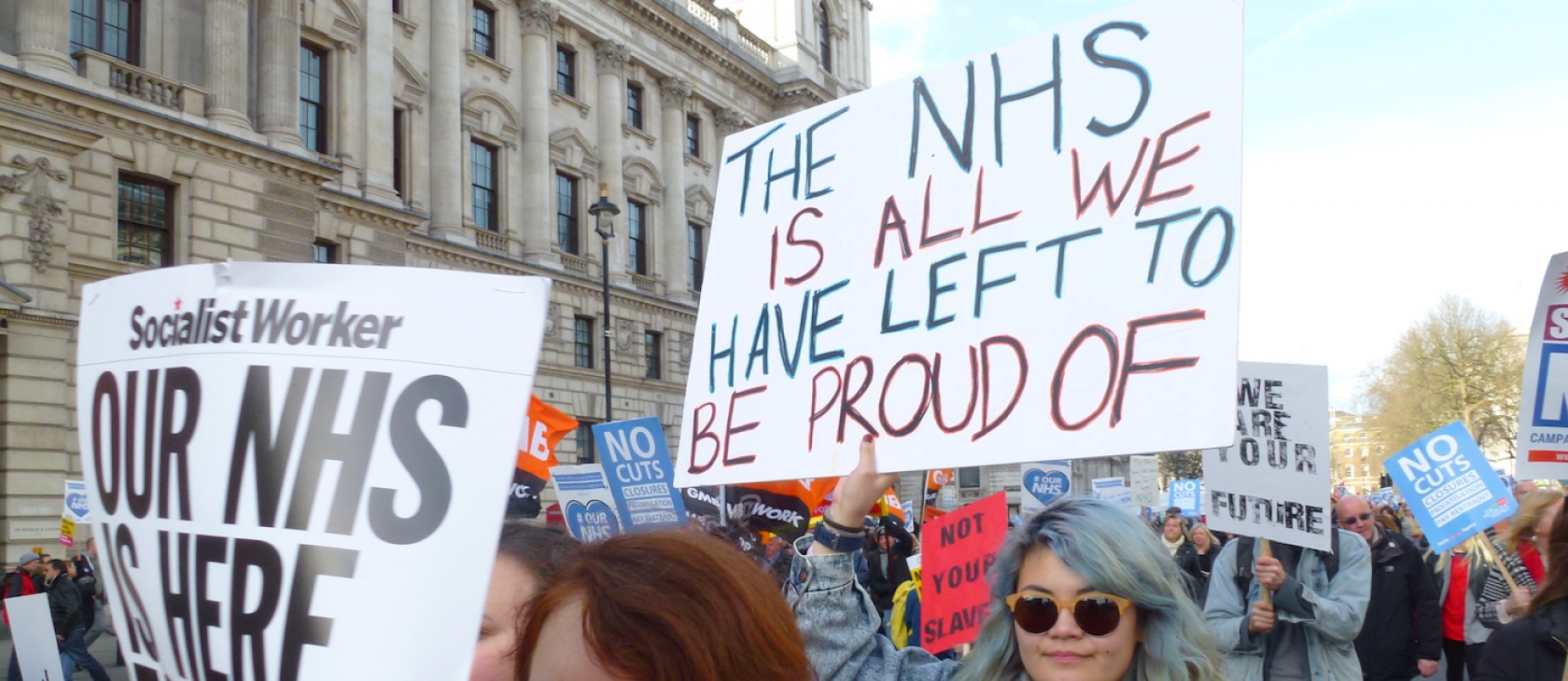In 1949, half-a-dozen ex-Communists wrote a book about their former faith, dubbing socialism The God that Failed. As the UK’s revered National Health Service enters its worst spiral on record, it seems to have earned that title.
News broke Thursday morning the NHS had its worst month in history in December 2019. The number of people who waited more than four hours for treatment in its Accident & Emergency (A&E) rooms broke all previous records.
In 2010, the UK government made an ironclad commitment that 95 percent of patients at A&Es would be seen within four hours. In December, the number fell to 79.8 percent.
The numbers from last month’s NHS “winter crisis” could induce a case of seasonal depression. In December:
- 396,762 people waited more than four hours for treatment in A&E waiting rooms;
- 2,347 A&E patients waited for 12 hours on gurneys in hallways or side rooms in December – double the 1,112 in November and up a whopping 826 percent from 284 in December 2018;
- 18,251 patients inside 12,824 ambulances waited more than 30 minutes to be admitted to the hospital, and another 5,427 waited more than an hour; and
- 120 times in December NHS hospitals had to reroute ambulances, because the original hospital lacked the capacity to see the patient at all.
But news of NHS failure can hardly be called news at this point. The phrase “worst month on record” could be permanently fused together in headlines covering the NHS. Ailing Brits experienced record-breaking NHS emergency care delays in October and November 2019, as well. With cold weather en route and flu season not yet underway, new subterranean lows may lie ahead.
NHS wait times have crept longer, causing underlying maladies to worsen, for nearly two decades. In a 2001 report, the UK Department of Health and Social Care decreed, “By 2004, no one should wait more than four hours in A&E from arrival to admission, transfer or discharge.” The Labour government reduced this requirement to 98 percent of A&E patients in 2004, and the Coalition government further lowered it to 95 percent in 2010. Yet the NHS last met that goal in July 2015.
Four hours is roughly twice as long as U.S. citizens spend in emergency rooms, according to ProPublica’s “ER Inspector.” (The only places close are the District of Columbia and Maryland.) But even that bar is too high for the NHS.
“Sadly the failure to meet the access targets for years now seems to have been 'normalised,’” said Dr. Nick Scriven of the Society for Acute Medicine.
The phrase “worst month on record” could be permanently fused together in headlines covering the NHS.
The UK government did what any government typically does when one of its programs serially fails to meet tangible goals: It got rid of the goals. In March, the NHS rolled out a plan to eliminate A&E wait times and replace them with a scheme to prioritize certain kinds of ailments (read: rationing). The NHS is currently testing those guidelines for likely implementation next year. Some even ask if measuring this measure is a distraction.
Sadly, long delays hardly end in the emergency room. The Times found that 11.3 million British citizens waited more than three weeks to see a doctor since July 2019, 5.6 million of them standing idle for more than a month. Cancer patients are not exempt. A survey from the Royal College of Surgeons of England found that 421 surgeons found the waiting times caused tumors and injuries to worsen, resulting in more dire surgeries. Excessive wait times may cause people with eating disorders to end up hospitalized. Meanwhile, the BBC this week chose to highlight the wait times of transgender and non-binary people for gender-transition treatment.
When it comes to actual outcomes, the UK has worse results, not just than the U.S., but other European systems. Economic realities apply to every sector of the economy, including healthcare. Single-payer healthcare systems, which are “free at the point of service” (though, nota bene, not free), flood a limited supply with unlimited demand, triggering inevitable rationing. The low morale causes doctors to burnout, further reducing the supply. The IEA has suggested charging co-payments – a measure that has worked in the U.S. Asking Medicaid recipients to make a modest co-payment increased the use of preventative services and decreased the use of emergency rooms as the primary point of care in Indiana. Instead, both parties seem to think the answer is not fundamental reform but more money.
Meanwhile, the UK’s standard of care for all citizens fell so low that in 2017 the British Red Cross likened it to a “humanitarian crisis.”
Nonetheless, the NHS continues to receive a reputation bordering on idolatry on both sides of the Atlantic.
The NHS enjoys near-mythic status in the UK. British leaders have extolled the service on a global stage during the 2012 Olympics opening, and the Archbishop of Canterbury has led NHS-themed services inside Westminster Abbey. Meanwhile, U.S. outlets cite the Commonwealth Fund’s highly biased study listing the NHS as the world’s best healthcare system, and single-payer advocates fancy themselves leading a “Jesus Movement.”
But real gods deliver. The NHS continues to expose the failures of nationalized, single-payer healthcare – and who bears the misery and disease produced by politicians’ unquestioning devotion to the state.
(Photo credit: Radarsmum67. This photo has been cropped. CC BY 2.0.)




